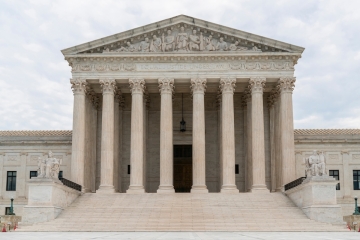Last week, the Wisconsin Reporter reported that the United States Department of Justice is still conducting an “ongoing investigation” into whether Wisconsin’s private-school choice program discriminates against children with disabilities and, as a result, violates federal disability law.
In 2011, the American Civil Liberties Union (ACLU) filed a complaint with the Justice Department accusing the Wisconsin school-choice program—as well as two private schools in the program—of discriminating against children with disabilities. In April 2013, the Civil Rights Division of the Justice Department sent a letter and legal memo to the state of Wisconsin accusing the school-choice program of violating the Americans with Disabilities Act (ADA). They concluded that unless Wisconsin drastically changes its choice program, the United States will take legal action.
Among its numerous demands, the Justice Department wants private choice schools to be forced to adjust their programming to accommodate all children with disabilities, so long as the accommodation does not “fundamentally alter” the school (an extremely onerous legal standard). Federal disability law, as traditionally interpreted by the U.S. Department of Education, applies a different, less exacting standard to private schools in the choice program. Private schools must only make “minor adjustments” to accommodate students with disabilities. Given that private schools do not receive the same government funding for special education as public schools and may wish to take distinctive approaches to students with behavioral problems, this is perfectly appropriate.
If the Justice Department gets its way, Wisconsin’s school-choice program would eventually collapse, as private schools would be forced to provide services for which they are not funded. The organization that I work for, the Wisconsin Institute for Law & Liberty, responded to the Justice Department, releasing a legal opinion rebutting their letter (the executive summary is here, and the longer memorandum is here). A few of our main points can be summarized as follows:
- Choice schools are not public entities. The Justice Department accuses choice schools of violating Title II of the ADA, but this law prohibits public entities from discriminating against children with disabilities. It is simply wrong to argue that private organizations such as private schools that accept public money inherit all of the legal responsibilities of a public entity and therefore fall under Title II of the ADA. A parent using a voucher at a private school is no different from a low-income person using a food stamp at a grocery store.
- The Justice Department ignores federal law and administrative policy. According to the ADA, as well as DOJ’s own technical-assistance manual, private schools are subject to Title III of the ADA, not Title II, as the Justice Department claims. This is no small oversight. Congress has chosen to exempt religious entities, including schools, from Title III, and religious schools make up over 85 percent of the schools in Wisconsin’s choice program.
- State discrimination laws already exist. Under Wisconsin law, it is illegal for any private school, including those in the choice program, to discriminate against children with disabilities. What’s more, the state educational agency, the Department of Public Instruction, has not received any complaints of discrimination.
- There is no evidence. The Justice Department’s investigation, which has been ongoing for three years, has yet to produce any evidence of actual discrimination against children with disabilities.
So where are we now? The Wisconsin Institute for Law & Liberty has obtained public records showing that the Justice Department won’t leave Wisconsin alone. They are ordering the state turn to over private-school enrollment data to the federal government. In addition, the Justice Department wants their other demands to be implemented by the end of the school year.
The Department of Public Instruction seems to understand that they do not have the legal authority to do what the Justice Department is demanding. But choice advocates can take little comfort in this. The agency is led by an independently elected Superintendent of Public Instruction who recently called school-choice expansion “morally wrong.” Our record requests suggest that DPI might go along to get along. Last month, the DPI sent the Justice Department a bizarre story from an Occupy Milwaukee blog of a private school expelling a student, not for being disabled but for failing to meet academic and other standards.
Even though what the Justice Department seeks to do would radically transform Wisconsin education policy, they will not comment on the investigation. The DPI, too, refuses to talk about it. This leaves everyone—parents, choice advocates, and school leaders—wondering what will happen next.
Yet one needs only to look south toward Louisiana, where the Justice Department filed a lawsuit on equally outrageous grounds, to see that a storm is brewing.
CJ Szafir is the associate counsel and education-policy director of the Wisconsin Institute for Law & Liberty (WILL), a nonprofit legal organization in Milwaukee that advances free markets, individual liberty, limited government, and a robust civil society. His email is [email protected].


